Black and White Movie Richard I Cannot Go With You or See You Again
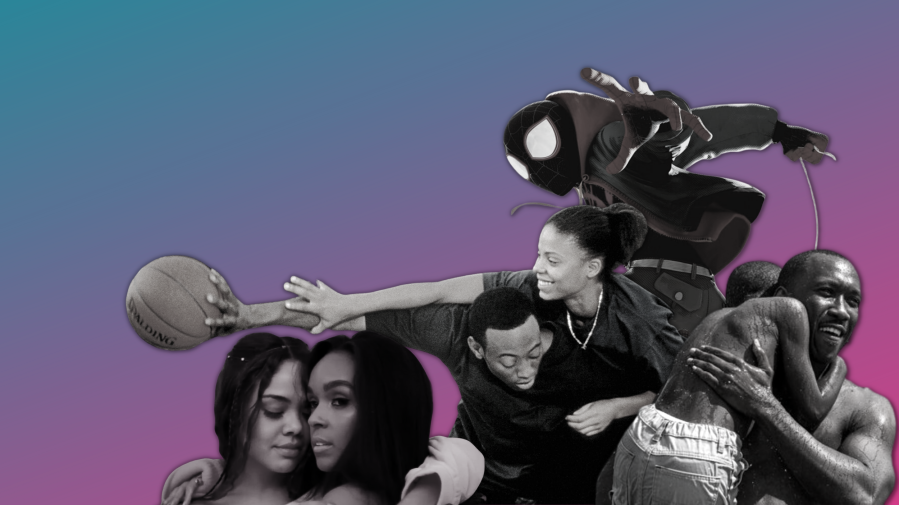
Each year, February is a buoy of celebration — celebrations of honey, of course, simply likewise the recognition and celebration of an essential and important element of American history: Black history. Representation matters, and celebrating Black History Calendar month each February is a valuable time to open the doors to conversations and learning opportunities about Blackness folks' achievements, the rich depth of Black culture and the ways in which those accomplishments remain indelibly woven into the fabric of the American story.
While it'south disquisitional non to relegate discussions nearly Black history to February alone, the month provides a significant opportunity to recalibrate and refocus on the cultural and creative contributions Black folks have fabricated throughout American history and to spark discussions nigh inclusion, diverseness and our shared role in pursuing racial justice. It's besides a fourth dimension to bask creative works by Black creators — works that illuminate collective pain but too those that highlight the dazzler of what information technology means to be Black.
In a video for BBC Ideas, author Irenosen Okojie reiterates that it's critical to celebrate Black film, art and literature because these works shape our perception of Black communities and people. "What'due south happened for a lot of the time and for a long fourth dimension is Black trauma has been something that's been at the forefront," Okojie said. "What that does in the long term, I think, is that information technology creates a warped sense of what Black civilisation is, then nosotros don't run across enough of Black accomplishment and Blackness celebration."
Black History Month, then, is a time of particular importance to brand space for Blackness joy and for the full richness of Black folks' experiences — and you tin can get started on that with these incredible movies.
Crooklyn (1994)
In the wake of his must-watch biographical drama Malcolm X (1992), acclaimed director Spike Lee pivoted from a sweeping, Ceremonious Rights Movement picture show to something a bit more autobiographical. In fact, Lee's Crooklyn, which is based on his childhood growing up in 1970's Brooklyn, was co-written with his siblings.
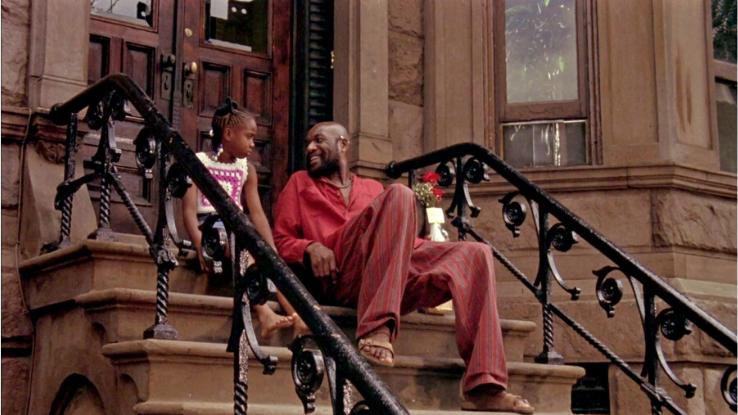
In "The Black Film Canon: The 50 Greatest Movies by Blackness Directors," writers Aisha Harris and Dan Kois noted that the film "contains some of the nigh vivid, enjoyable, appreciating scenes of Lee's career." At its core, Crooklyn is a coming-of-age story for Troy (Zelda Harris), who is a stand-in for Joie Lee, the director'due south sis and co-writer, and a thoughtful family portrait. "It's the Spike flick you might have skipped," Harris and Kois wrote, "but it's the one that will make you dear him all the more than."
Written and directed by Reginald Hudlin, House Party has get a cult classic in the decades since its release, and the teen one-act helped launch the careers of Martin Lawrence, Tisha Campbell and Daryl Mitchell. In House Party, the motion picture's stars, Christopher "Child" Reid and Christopher "Play" Martin — together known as the hip-hop duo Kid 'n' Play — determine to throw a (y'all guessed information technology) political party while Play's parents are abroad on vacation.
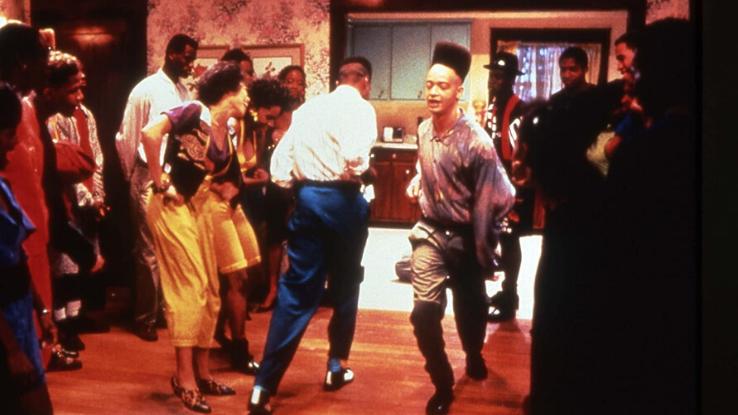
Unsurprisingly, things go out of hand. Hilarity (and an iconic dance sequence and several prizes at Sundance) ensues. In "The Black Film Canon," Aisha Harris and Dan Kois noted that, thanks to Business firm Political party, "Blackness teenage moving-picture show characters were finally allowed to be equally freewheeling and mischievous — without things ever getting too heavy — as their white counterparts had been in high school romps for decades."
How Stella Got Her Groove Back (1998)
Directed by Kevin Rodney Sullivan, How Stella Got Her Groove Back tells the story of Stella Payne (Angela Bassett), a successful 40-year-old stockbroker who's content working nine to five and raising her son — until her pal Delilah (Whoopi Goldberg) convinces her to take a well-deserved trip to Jamaica. While at that place, Stella meets handsome islander Winston (Taye Diggs).
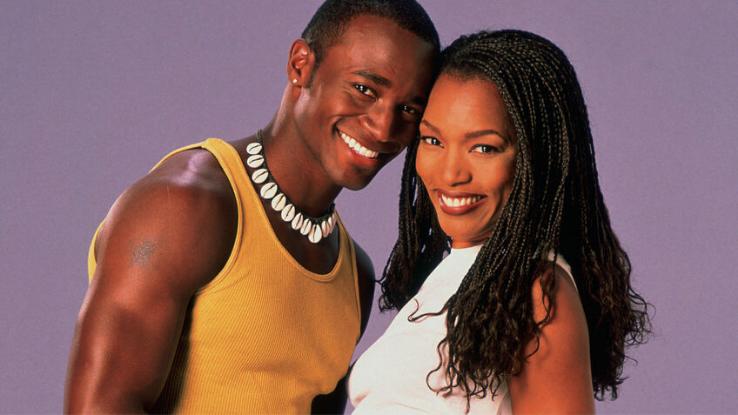
As you might look, the winning May-September romance that ensues forces Stella to accept a proficient, hard look at her life and figure out what information technology is — or who it is — she really wants. Rolling Rock critic Peter Travers wrote that Stella "delivers guilt-free escapism about pretty people having wicked-hot fun in pretty places." Honestly, what more could you want out of a rom-com?
Do the Correct Thing (1989)
Nominated for an Oscar for Best Original Screenplay, Practice the Right Thing is a comedy-drama that was written, directed and produced by acclaimed filmmaker Fasten Lee. Often referred to as one of the greatest films of all fourth dimension, Sezín Koehler, writing for Black Girl Nerds, noted that, fifty-fifty decades after its initial release, "Practice the Correct Thing remains an absolute master course in American cinema."
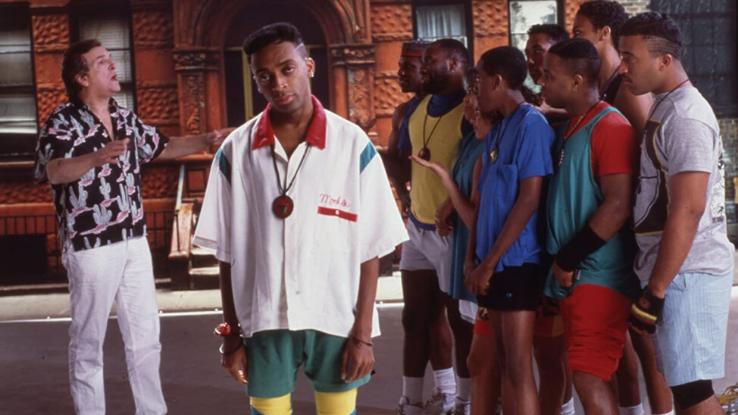
For get-go-time viewers, the flick is set in Brooklyn's Bed-Stuy neighborhood, which is simmering with racial tension — all of which comes to a head on a hot summertime twenty-four hours. Toward the end of the moving picture, protagonist Mookie (Lee) must make an important decision. In the flick'due south DVD commentary, Lee points out that only white viewers inquire him if Mookie does the right matter, whereas Black viewers don't question the choice. Needless to say, the picture remains essential viewing more than 30 years later.
Moonlight (2016)
Written and directed by Barry Jenkins, the coming-of-age drama Moonlight is based on Tarell Alvin McCraney's unpublished play In Moonlight Black Boys Wait Blue. Taking from its stage roots, Jenkins' film is told in three parts, each representing a different phase in the chief character'due south, Chiron (Trevante Rhodes, Ashton Sanders and Alex Hibbert), life and explores his struggles with sexuality, identity and by abuse.
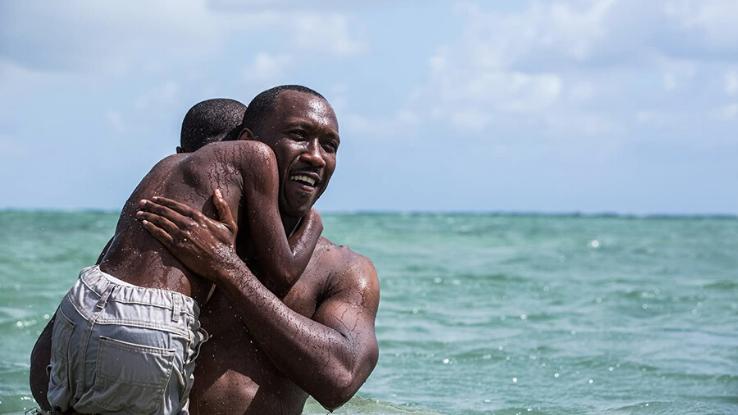
Often, Moonlight is heralded every bit i of the all-time films of the 21st century. The film won top prizes at both the Golden Globes and the Oscars and nabbed additional Oscars for Best Adapted Screenplay and Best Supporting Thespian for Mahershala Ali, who plays Chiron's father figure. By exploring the intersections of masculinity, queerness and Blackness, Moonlight, as the Los Angeles Times' Justin Chang puts it, is both "achingly romantic and uncommonly wise."
Boyz n the Hood (1991)
Without a dubiousness, this moving-picture show gave a vocalisation to a generation of young, Black Americans. Written and directed by John Singleton, Boyz n the Hood features a truly incredible cast: Ice Cube, Cuba Gooding Jr., Morris Chestnut, Laurence Fishburne, Nia Long, Regina King and Angela Bassett — but the stellar cast is just one of the film's many merits. The moving-picture show follows Tre Styles (Gooding Jr.), who is sent to alive with his father (Fishburne) in South Central Los Angeles. While there, Tre encounters the neighborhood's booming gang culture.
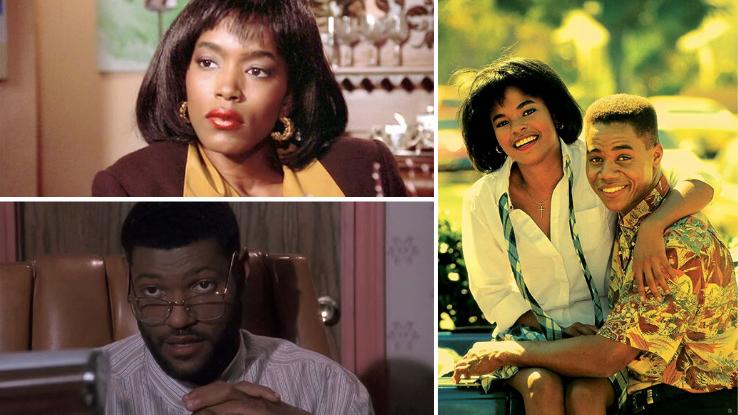
Described in the "The Black Film Canon" as the "quintessential 'hood' movie that sparked a flurry of '90s imitators… 25 years after, Boyz north the Hood still stands among the all-time films of the decade." This was partly because Singleton, who became the youngest Best Director Oscar nominee and kickoff Black man to exist nominated for a directing Oscar, "captured a very particular cultural moment and uncovered the anger, despair and even hope of an urban Blackness America that had been largely ignored past the rest of the nation."
Love & Basketball (2000)
For her directorial debut, Gina Prince-Bythewood told Slate that she "wanted to brand a real love story with Black people. Not a romantic comedy, but the kind that wrecks you and builds you back up." Without a doubt, Love & Basketball does just that. The picture show traces the human relationship betwixt Monica (Sanaa Lathan) and Quincy (Omar Epps), two kids who dearest basketball, become rivals and then, throughout their lives, explore an on-again/off-again relationship.
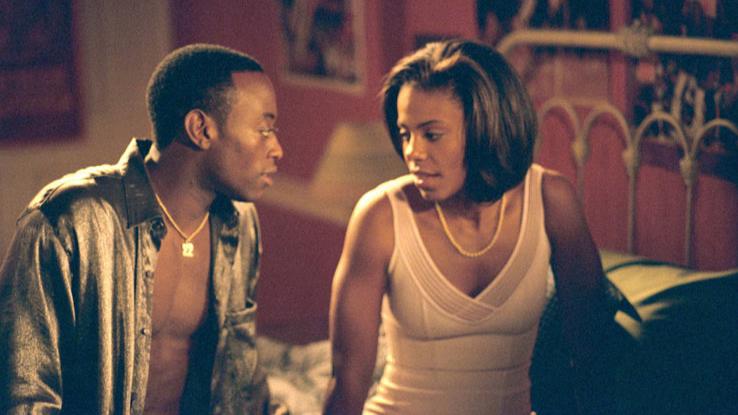
In add-on to giving audiences all the heartache and romantic loftier notes they could ask for, Love & Basketball also provides sports film thrills and deftly captures what it means to exist a woman athlete. Thespian and filmmaker Robert Townsend notes that Prince-Bythewood "painted on a romantic canvas that nosotros ordinarily don't come across. We [Blackness folks] don't get that many love stories, and she gave us a love story that made us believe in dearest over again."
Dingy Computer (2018)
Technically, Dirty Computer was dubbed an "emotion pic" past its creator, vocaliser/songwriter Janelle Monáe, who crafted the brusque movie every bit a companion slice to her 2018 album of the same proper name. In by albums, Monáe adopted the android persona of Cindi Mayweather, saying that she "chose an android because the android to me represents 'the other' in our society."
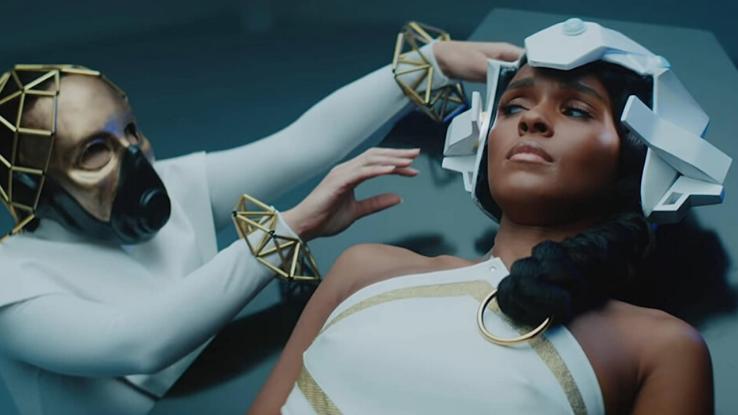
In the sci-fi masterpiece Dingy Computer, Monáe plays an approximation of her human cocky, dubbed Jane 57821 by the authorities of the dystopian globe, who call humans "Computers" and endeavour to cleanse them — i.e. erase their memories and personalities — if they're deemed "dingy" (or unique). Backed by the album's incredible electro-pop sound, Dirty Calculator threads together the album's seemingly disparate music videos, punctuating them with a feminist retelling of the dystopian genre and, at the same time, crafting a abrupt commentary virtually present-twenty-four hours America.
Shaft (1971)
"Gordon Parks' shaggy detective story is hardly perfect[,] [t]hough it'southward a thoroughly satisfying B-movie," Aisha Harris and Dan Kois wrote in Slate's "The Black Motion-picture show Canon." Only there's no denying that the always-absurd Shaft was an instant hitting when it debuted in the summertime of 1971.
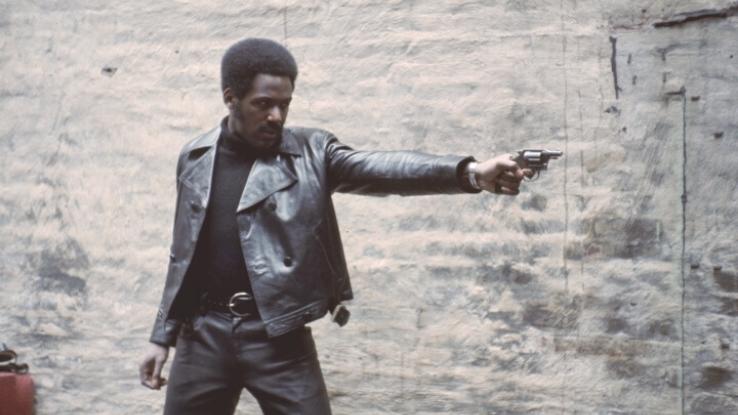
Set in New York, the film stars Richard Roundtree as the eponymous private detective — at a time when Black action heroes were nearly nonexistent — and explores themes like race, masculinity and the Black Power movement.
"The first black detective thriller helmed by a black director. It paved the way for all the other blackness activity heroes to follow," said filmmaker Ernest Dickerson (Juice, The Wire). Viewers can also check out other entries in the film series, including a Shaft (2000) remake, which stars Samuel L. Jackson and ditches the Blaxploitation elements for more of a crime-thriller feel, and Shaft (2019), which stars Roundtree, Jackson and Jessie T. Usher in a more satirical, buddy-cop comedy accept.
Sister Act 2: Back in the Addiction (1993)
Sister Act ii: Dorsum in the Habit is the rare sequel that may, in fact, surpass the original film'due south greatness — and that's not just because it's title contains the best pun e'er. In the original film, Deloris van Cartier (Whoopi Goldberg) dons a addiction and poses as a nun in order to hide from the mob. The sequel, which is directed past Blackness filmmaker and role player Bill Duke, finds Deloris hitting it big as a Las Vegas performer.
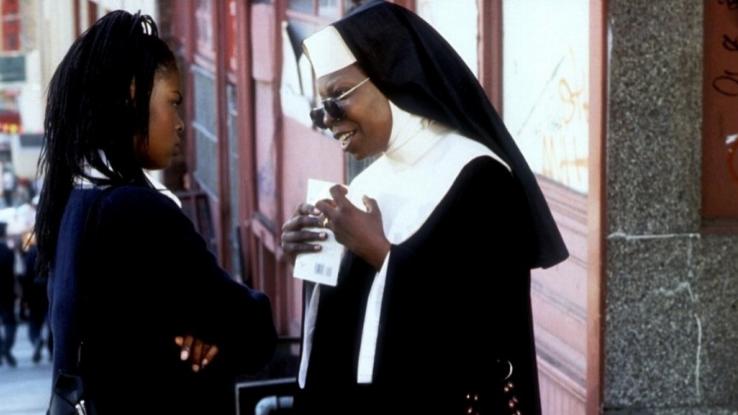
Equally fate would have it, she finds herself taking up the Sister Mary Clarence moniker again in order to teach music to a group of Catholic students whose schoolhouse is slated for closure. In a Refinery29 article about Black joy, Sesali Bowen teamed up with the co-hosts of The Black Joy Mixtape podcast, Amber J. Phillips and Jazmine Walker, and noted that Sister Act 2 works considering "Gospel choirs are an of import part of Blackness culture and are directly responsible for spreading cheer and inspiration in any given space."
Pariah (2011)
Executive produced by Spike Lee, Pariah marks acclaimed director Dee Rees' debut feature-length film and was adapted from her award-winning 2007 brusque of the same name. The film stars Adepero Oduye every bit Akin, a 17-yr-old from Brooklyn who's eager for her commencement sexual feel — and discovering what it ways as a lesbian.
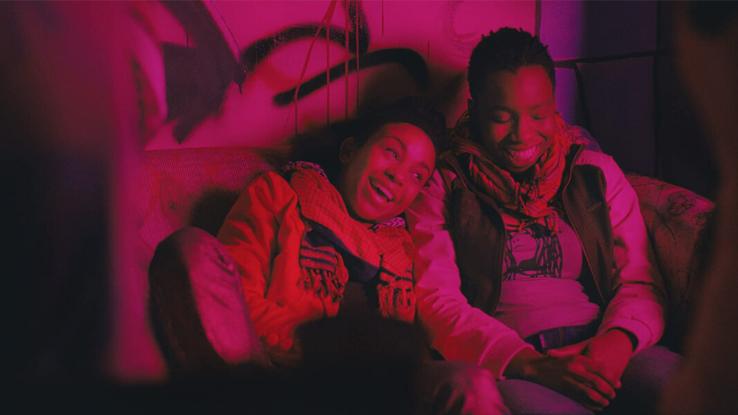
Alike's parents (played past Charles Parnell and Kim Wayans) love their daughter securely, but mistrust — and fail to actually sympathise — her in the wake of her cocky-discovery. Praising the raw, tender film, critic Dana Stevens wrote, "But when y'all remember every coming-out-as-coming-of-age story has been told, along comes Pariah. Adepero Oduye is incandescent equally she's forced to code-switch betwixt the ladylike conduct expected by her churchgoing parents and the mystifying rituals of the gay nightclub she frequents."
Black Panther (2018)
If you haven't seen Curiosity's three-time Oscar-winning blockbuster Black Panther, remedy that immediately — even if you aren't an MCU true-blue. Directed past Ryan Coogler (Fruitvale Station, Creed), the flick stars Chadwick Boseman every bit T'Challa, a.k.a. Black Panther, who must grapple with being crowned king of Wakanda following his begetter'due south sudden death. Of course, T'Challa's issues don't end there; he'due south as well challenged by Killmonger (Michael B. Jordan), who wants to disengage Wakanda'due south isolationist policies and offset a global revolution.
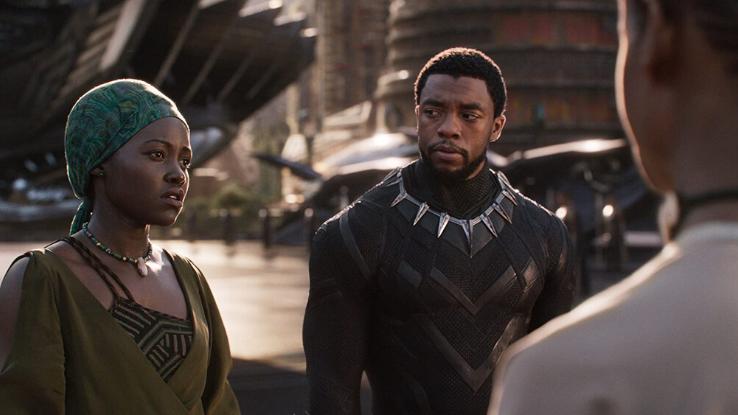
Onscreen, the about all-Black cast is led by stars like Lupita Nyong'o, Danai Gurira, Daniel Kaluuya, Letitia Wright, Winston Duke, Angela Bassett and Forest Whitaker, and, behind the scenes, the film is besides bolstered past Black creatives and filmmakers, like Oscar-winning costume designer Ruth E. Carter. Thrilling, thought-provoking and incredibly ballsy, Black Panther garnered a staggering $ane.3 billion worldwide, making it the highest-grossing pic by a Black director.
Girls Trip (2017)
Co-written by Black-ish creator Kenya Barris and Issa Rae collaborator Tracy Oliver, Girls Trip assembles an all-star cast — Regina Hall, Queen Latifah, Tiffany Haddish and Jada Pinkett Smith — for a film that's best described equally comedy gold.
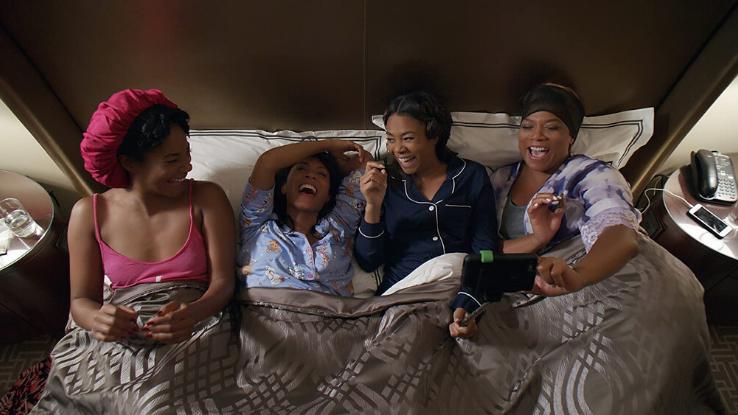
In the film, Hall plays lifestyle author Ryan Pierce, who is dubbed "the next Oprah," and is invited to speak at the Essence Music Festival in New Orleans. Hoping to reconnect with her college pals, Ryan decides to brand a girls' weekend out of the whole matter — leading to hilarity, hijinks and heartfelt rekindling. The film is credited with launching Haddish'due south career to new heights, and it ended upwardly grossing $140 million worldwide, making it the first motion-picture show past a Black American woman screenwriter to do and then.
Bessie (2015)
The made-for-HBO film Bessie marks director Dee Rees second entry on our must-watch listing, and it sees Rees teaming up with Queen Latifah to tell the story of American blues vocalizer Bessie Smith. Audiences and critics alike flocked to their TVs to sentry Bessie Smith's (Queen Latifah) transformation from struggling songstress into "The Empress of Blues."
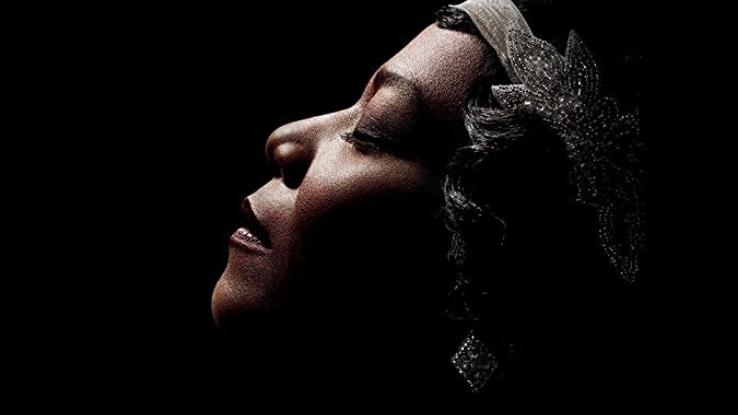
By 2016, it became the most-watched HBO original motion-picture show of all time and garnered four Emmy Awards, including Outstanding Goggle box Movie. Praised universally for Queen Latifah's star performance as well as Mo'Nique's supporting part equally boyfriend dejection icon Ma Rainey, Bessie was described in "The Blackness Moving-picture show Canon" as "one of the all-time and virtually unabashedly honest portrayals of Black womanhood and sexuality put on screen." Ren Jender, a writer for Bowwow Flicks, echoed that sentiment, saying that although the biopic follows the genre'due south usual beats, "a queer Black woman (Smith was bisexual) past an out queer Black adult female who as well directed is unusual" and, therefore, needed.
Spider-Homo: Into the Spider-Verse (2018)
Sure, nosotros've seen quite a few Spider-Man origin stories on the argent screen, but "permit's do this just i more fourth dimension." In this iteration, our hero is Miles Morales (Shameik Moore), a Blackness Puerto Rican teen from Brooklyn who fears he'southward not living upwards to his begetter'southward high expectations. As Spidey fate would accept it, Miles is bitten by a radioactive arachnid. Our hero and so runs into Peter Parker, a.k.a. Spider-Human, who dies while battling the Greenish Goblin and Kingpin (Liev Schreiber).
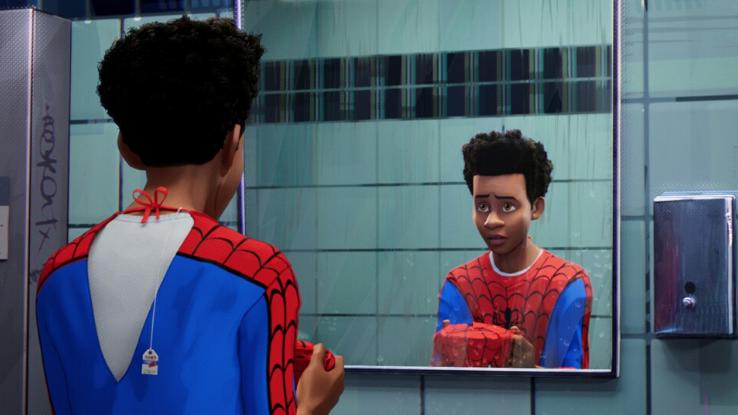
With Spider-Human being out of the way, Kingpin hopes his "Super Collider" project will grant him access to parallel universes. To salve Brooklyn — and the multiverse — Miles takes upward the Spidey mantle after getting a few pointers from some inter-dimensional Spider-People, like reluctant mentor Peter B. Parker (Jake Johnson) and Spider-Gwen (Hailee Steinfeld). Hilarious, action-packed and total of heart, the Oscar-winning Spider-Man: Into the Spider-Poesy proves anyone can wear the mask.
Source: https://www.ask.com/entertainment/movies-celebrate-black-characters-experiences-creators?utm_content=params%3Ao%3D740004%26ad%3DdirN%26qo%3DserpIndex
0 Response to "Black and White Movie Richard I Cannot Go With You or See You Again"
إرسال تعليق